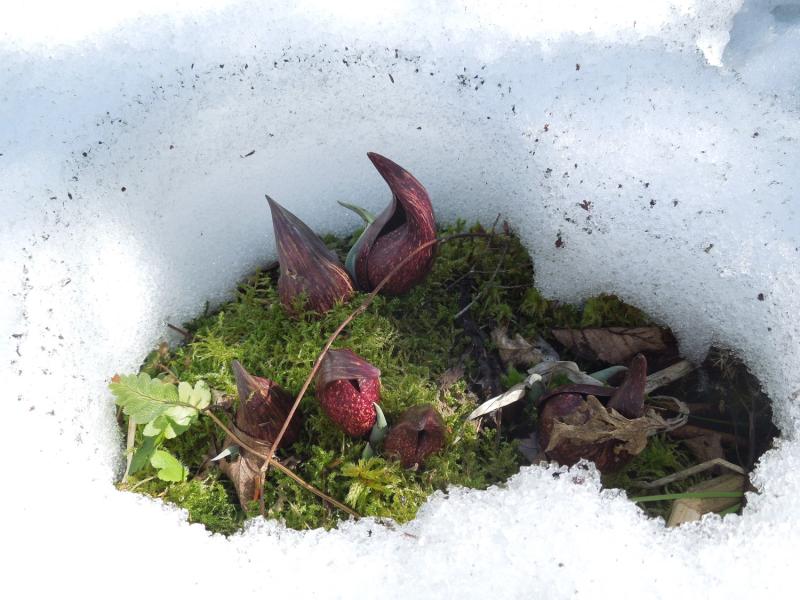Spring Smells

We (or at least most of us) love the first spring flowers. Purple and yellow crocuses scattered throughout front yards remind us that winter will soon give way to warmer weather and beautiful foliage. Not all spring flowers look like tulips or smell like daffodils however; the skunk cabbage smells and looks a bit like it sounds. Symplocarpus foetidus is the scientific name for skunk cabbage, which flowers in mid-winter, typically emerging through the snow. To do this, the skunk cabbage is actually capable of generating heat that can melt the snow and ice around it, sometimes reaching temperatures as high as 77°F. After flowering, the skunk cabbage grows huge, elephant ear-like leaves that are characteristic (and usually the most recognizable part) of the plant. And like the common name suggests, skunk cabbage produces a putrid smell, especially when the leaves are damaged (so watch your step!). The scent is actually a specialized mechanism the plant uses to attract certain pollinators like flies that enjoy the rotting smell. Look out for this native Ohio plant on your next winter hike!

Written by TPS Fellow Katie D'Amico
Photo sources:
http://www.indefenseofplants.com/blog/2015/3/25/do-you-smell-skunk?rq=araceae
http://urbanecologycenter.org/blog/native-plant-eastern-skunk-cabbage.html
